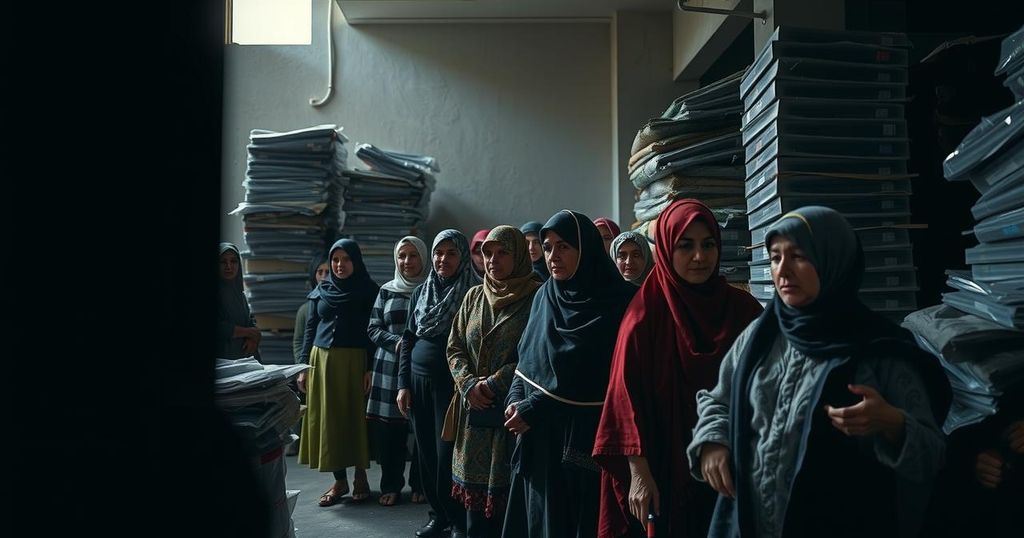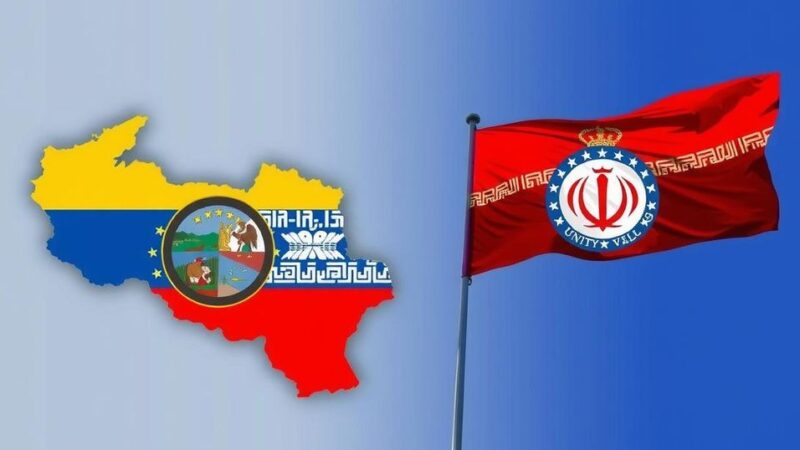Jaiatu Koroma and several Sierra Leonean women have found refuge in a warehouse shelter in Beirut, fleeing violence from escalating Israeli bombardments in Lebanon. The shelter provides basic necessities, but many women face systemic exploitation under Lebanon’s kafala system. Over a million people have been displaced, and efforts are being made to assist those in need of repatriation. Volunteers are working tirelessly to support these women amid a worsening humanitarian situation.
In a dilapidated warehouse on the outskirts of Beirut, Jaiatu Koroma, a 21-year-old woman from Sierra Leone, has found refuge along with numerous others who have fled their homes due to the ongoing conflict in Lebanon. Following a month of intense bombardment by Israeli forces, Koroma fled her residence in southern Beirut, initially taking shelter on the streets before reaching this volunteer-operated facility. The old concrete structure, known as The Shelter, now accommodates many women and their children, providing basic necessities such as food, water, and hygiene supplies. The conflict between Israel and Hezbollah has resulted in severe casualties and has displaced over a million individuals, as reported by Lebanese authorities. With alarming statistics indicating at least 2,546 fatalities, approximately half of whom have occurred in the past month, the situation remains dire. Many women at the shelter, including those like Koroma, have emerged vulnerable after falling prey to the exploitative kafala system of labor in Lebanon, which has frequently been condemned by rights groups.
The pressing humanitarian crisis in Lebanon has been exacerbated by the ongoing conflict, particularly since the escalation on September 23. This conflict has not only led to domestic displacement but has also severely impacted migrant workers. Many workers from Sierra Leone, like those in the shelter, arrive in Lebanon seeking employment to support their families back home, often under precarious circumstances defined by the kafala system. This sponsorship model has been criticized for enabling labor exploitation, contributing to dire living conditions for many migrants. The Sierra Leone consulate in Beirut recognizes the challenge posed by the war and is working alongside the International Organization for Migration to facilitate the safe return of their citizens. The Shelter has become a critical haven, providing much-needed assistance for those who seek refuge from violence and instability, showcasing the efforts of volunteers who strive to address the medical, psychological, and basic needs of the occupants.
The plight of Sierra Leonean women and their children in Lebanon underscores the intersection of migration, conflict, and systemic exploitation. As they navigate their hopes for safety and the urgent need for repatriation, their resilience and the commitment of local volunteers shine a light on a broader humanitarian crisis spurred by the ongoing conflict. The coordinated efforts of organizations like the International Organization for Migration and local consular representatives are crucial for addressing the challenges faced by these vulnerable individuals. It is imperative for the international community to recognize and respond to such humanitarian crises through sustainable support and interventions.
Original Source: www.ndtv.com






